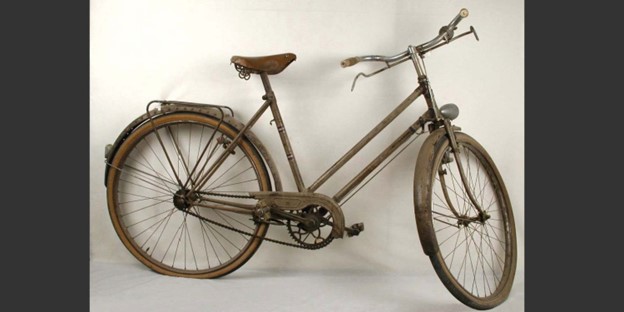As World War II raged and Europe fell to Hitler’s regime, some stood up to the Nazis’ hatred. French Christian Marie-Rose Gineste did so… on her bicycle.
A Christian Letter Against the Nazis
In August of 1942, the Nazi deportation and murder of French Jews reached its worst. But as French authorities allowed it to happen, French Christians spoke out against the ongoing Holocaust. One of these members of the Christian resistance, the Bishop of Montauban, wrote a letter to distribute to French churches that included this:
I hereby give voice to the outraged protest of Christian conscience, and I proclaim that all men, Aryans or non-Aryans, are brothers, being created by the same God. [I further assert] that all men whatever their race or religion, have the right to be respected by individuals and by states. Hence, the recent anti-Semitic measures are an affront to human dignity and a violation of the most sacred rights of the individual and the family.
To be read from the pulpits of area churches that Sunday, delivering the letter threatened to be a dangerous duty. But one parishioner did not fear the risks posed by the letter. Marie-Rose Gineste carried copies of the Bishop’s letter from church to church on her trusty bicycle. Read that Sunday from every pulpit (save one, from which preached a Nazi sympathizer), to this day historians credit the letter for galvanizing the French people against the Nazis and with their Jewish neighbours
Turning Words into Actions
Marie-Rose also did much to help those Jewish neighbours. Though she lived just a hundred metres from the Gestapo headquarters, the brave Frenchwoman did not let that stop her. Sick from watching the suffering of the local Jewish people and from watching Jewish children being ripped from their parents’ arms, she helped in any way she could.
Marie-Rose sheltered Jews in her home. She found them hiding places in local monasteries. She provided fake identity cards to Jewish refugees. Especially helpful with the latter activity, she found paper for the ID cards, printed the documents, forged signatures, and delivered the identification to those who needed it.
When ‘Wrong-Doing’ Is Right
The local authorities suspected Marie-Rose of helping the resistance and arrested her. Questioned harshly, Marie-Rose kept her cool and the Gestapo released her when they could provide no evidence of her “wrong-doing.”
One local Jewish woman, Emilie Braun, about to lose her hiding place, received forged papers and directions on how to flee from Marie-Rose. Emilie found a new hiding place on a nearby farm, where she stayed until the end of the war. Forty years later, when named Righteous Among the Nations by Yad Vashem, Marie-Rose travelled to Israel for the ceremony and re-acquainted herself with Emilie, the woman she saved.
When asked why she did what she did, despite the dangers it posed, the bicycle-riding Righteous Gentile cited her Christian faith:
Since my childhood Christianity has dominated and oriented my entire life—before the war, during the war, during the occupation, and afterwards until this day…in my various and numerous deeds, and all the days of my life.




